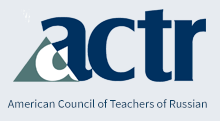Russian Language Journal
Keywords
humanities, Russian studies, peer-to-peer, experiential learning
Abstract
Like other disciplines in the humanities, Russian Studies faces an ongoing crisis of recruiting and retaining majors and minors for the longevity of undergraduate programs (Looney and Lusin 2018). Shrinking budgets and limited resources compound the problem as language and culture departments across the United States are asked to do more with fewer resources (Gerber 2015). In the context of an increasingly corporatized academy where language and cultural studies are marginalized, faculty in Russian Studies have a powerful means at their disposal to attract new students and build cross-campus alliances: the common language of food. Courses on foodways can reinvigorate programs in Russian Studies and related disciplines by building collaborations between departments and attracting new students not typically drawn to the study of foreign languages and cultures.
Recommended Citation
Caffee, N., & Lucey, C. (2018). Borscht, Bliny, and Burritos: The Benefits of Peer-to-Peer Experiential Learning through Food. Russian Language Journal, 68(1). https://doi.org/10.70163/0036-0252.1059


